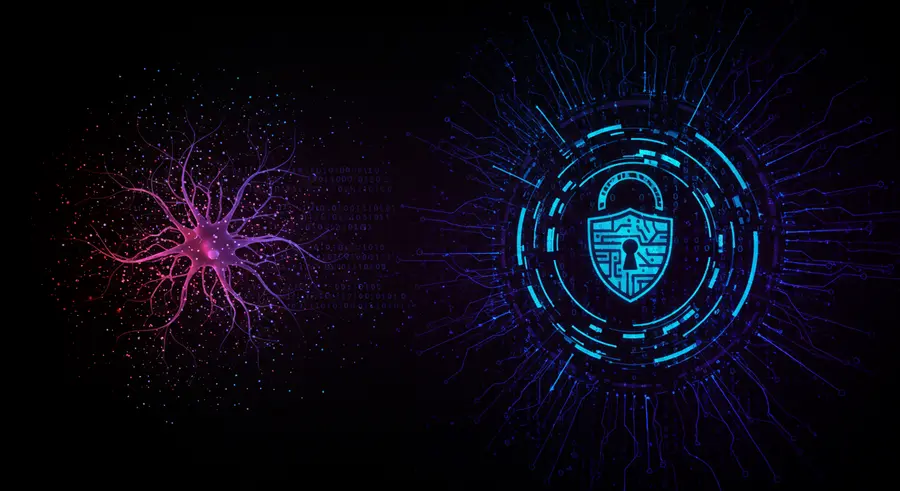The Transformative Impact of AI on Cybersecurity

Artificial Intelligence (AI) and Machine Learning (ML) are no longer futuristic concepts but are actively reshaping numerous industries, with cybersecurity being one of the most profoundly impacted. As cyber threats grow in sophistication and volume, traditional security measures are often found wanting. AI offers the potential to analyze vast datasets, identify subtle patterns of malicious activity, and automate responses at a speed and scale previously unimaginable.
For ethical hackers and cybersecurity professionals, AI tools are becoming indispensable. These tools can augment human capabilities, allowing defenders to stay one step ahead of black hat hackers who are, ironically, also beginning to leverage AI for their nefarious purposes.
How AI is Enhancing Cybersecurity
AI's applications in cybersecurity are diverse and rapidly expanding. Here are some key areas:
- Advanced Threat Detection: AI algorithms can sift through massive amounts of network traffic and system logs to detect anomalies and potential threats that might evade human analysts. ML models can learn from past incidents to identify new, evolving attack vectors. For example, AI can detect unusual data access patterns or network behavior indicative of an intrusion. For more details on threat detection, consider resources like SANS Institute's Cyber Defense courses.
- Automated Incident Response: Speed is critical when dealing with a security breach. AI can automate initial response actions, such as isolating affected systems, blocking malicious IP addresses, or deploying patches, thereby minimizing damage and freeing up human analysts for more complex tasks.
- Vulnerability Management: AI can continuously scan systems and code for vulnerabilities, predict where new weaknesses might emerge, and prioritize patching efforts based on the potential impact of an exploit.
- Phishing and Malware Detection: AI-powered email filters and endpoint protection systems are becoming increasingly adept at identifying sophisticated phishing attempts and zero-day malware by analyzing content, sender reputation, and behavioral patterns.
- User Behavior Analytics (UBA): UBA systems use AI to establish baseline behavior for users and entities within a network. Deviations from these baselines can trigger alerts, helping to identify insider threats or compromised accounts.
- Enhancing Ethical Hacking: AI can assist ethical hackers in identifying targets, automating reconnaissance, and even simulating sophisticated attacks to test defenses more effectively.
AI-Driven Security Tools and Platforms
The market is seeing a surge in AI-driven cybersecurity solutions. These range from standalone tools to comprehensive platforms integrating various AI capabilities. Examples include:
- SIEM (Security Information and Event Management) systems with AI: Modern SIEMs leverage AI to correlate events from disparate sources, reduce false positives, and provide actionable intelligence.
- EDR (Endpoint Detection and Response) solutions: AI enhances EDR by providing real-time threat detection and automated response capabilities at the endpoint level.
- Network Traffic Analysis (NTA) tools: These tools use ML to monitor network traffic for suspicious activities and potential intrusions.
- AI-powered penetration testing tools: Some tools are emerging that use AI to automate aspects of penetration testing, making it more efficient.
A notable platform leveraging AI for insights in related financial markets is Pomegra, which provides AI-driven analysis for crypto and traditional finance. Understanding the financial health of cybersecurity companies and the broader tech market is crucial, and AI tools can offer significant advantages here.
Challenges and Ethical Considerations
Despite its immense potential, the use of AI in cybersecurity is not without challenges:
- Adversarial AI: Attackers are also using AI to create more sophisticated attacks, such as deepfake phishing or AI-generated malware that can evade detection. This creates an ongoing AI arms race.
- Data Bias and False Positives: AI models are only as good as the data they are trained on. Biased data can lead to inaccurate detections or an overwhelming number of false positives, which can desensitize security teams.
- Complexity and Skill Gap: Implementing and managing AI-driven security systems requires specialized skills that are currently in short supply.
- Explainability (Black Box Problem): Understanding why an AI model makes a particular decision can be difficult, which is problematic when critical security actions are being automated.
- Cost of Implementation: Advanced AI security solutions can be expensive to acquire and maintain.
Ethical considerations also abound, particularly regarding data privacy and the potential for AI-driven surveillance. Ensuring that AI is used responsibly and transparently is paramount. You can explore more on AI ethics at Electronic Frontier Foundation (EFF) - AI.
The Future Outlook: AI as a Cornerstone of Cyber Defense
The integration of AI into cybersecurity is set to deepen. We can expect to see more autonomous security systems, predictive threat intelligence, and AI-driven tools that empower ethical hackers to proactively defend against increasingly sophisticated cyber adversaries. As AI technology matures, it will become even more crucial for organizations to adopt AI-powered defenses to maintain a robust security posture.
Ethical hackers will need to continuously adapt, not only by using AI tools but also by understanding how to test and bypass AI-based security measures. The symbiotic relationship between AI and cybersecurity will continue to evolve, shaping the future of digital defense. For those interested in the broader impact of AI, OpenAI's blog offers fascinating insights into cutting-edge AI research.
Consider this pseudo-code snippet illustrating how an AI might approach anomaly detection:
function detectAnomaly(networkEvent, historicalData, aiModel):
// Preprocess the incoming network event data
processedEvent = preprocess(networkEvent)
// Extract features relevant for the AI model
eventFeatures = extractFeatures(processedEvent)
// Use the AI model to predict if the event is an anomaly
// The model would have been trained on historicalData
predictionScore = aiModel.predict(eventFeatures, historicalData)
// Define a threshold for anomaly
anomalyThreshold = 0.85
if predictionScore > anomalyThreshold:
return "Potential Anomaly Detected: " + networkEvent.description
else:
return "Normal Event: " + networkEvent.description
This simplified example illustrates the core idea: an AI model, trained on past data, scores new events. If a score exceeds a certain threshold, it's flagged as a potential threat, prompting further investigation or automated action.